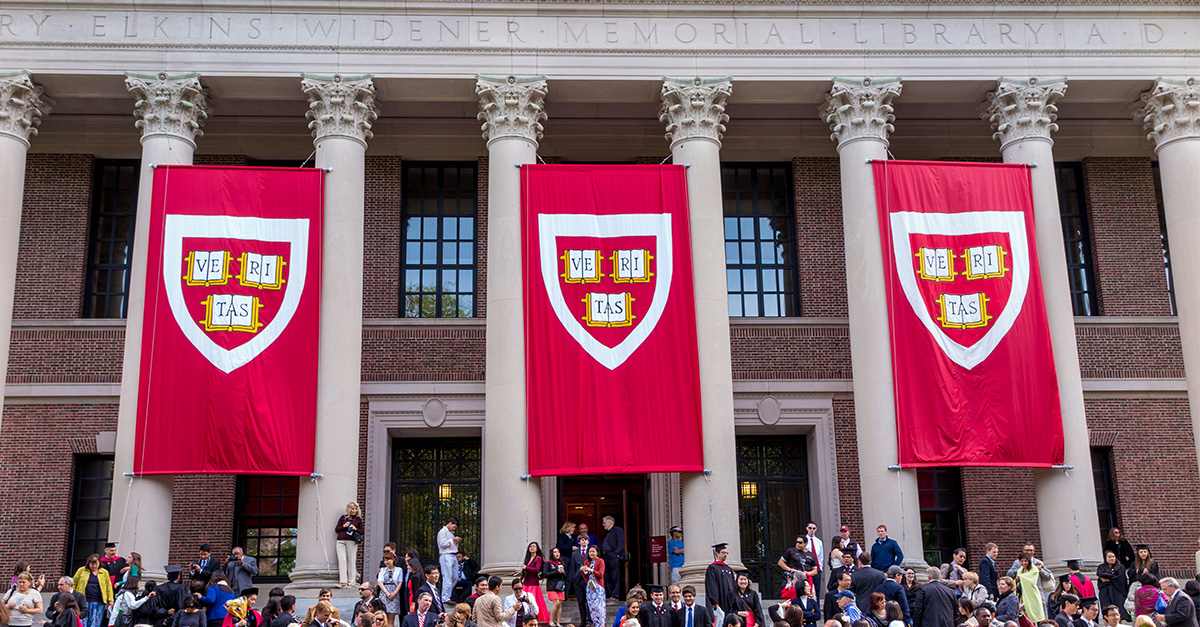


Get a free copy of Parental Rights & Education when you subscribe to our newsletter!

In our post-modern society, we can have veritas (truth) or we can DEI and wokeness — but
we can’t have both.
It took a few weeks, but the shoe finally dropped. On January 2, Claudine Gay resigned as president of Harvard University in the wake of her disastrous testimony before Congress about unchecked pro-Palestinian student mobs on campus (who were arguably chanting pro-genocide slogans) and the subsequent revelation of a long history of plagiarism in her meager body of academic work.
The controversy surrounding Gay has raised serious questions about the integrity of academic leadership in the Ivy Leagues in general and at Harvard in particular. Since 1636, Harvard’s motto has been “veritas,” the Latin word for truth.
Hard to argue your institution of higher education really cares about truth when it’s led by someone who passes off other people’s work as their own.
The evidence of Gay’s plagiarism was first brought to light by conservative activist Christopher Rufo and reporter Christopher Brunet. They found proof that Gay had plagiarized several passages of her 1997 doctoral dissertation by failing to properly quote or credit the works of seven different scholars. Further reports revealed that Gay had plagiarized passages in three additional publications, as well as two more previously unidentified paragraphs of her thesis. An anonymous complaint submitted to a Harvard research integrity officer described dozens of instances of alleged plagiarism in Gay’s academic publications.
The scale and audacity of the plagiarism is staggering: In four papers published between 1993 and 2017, Gay paraphrased or quoted nearly 20 authors — including two of her colleagues in Harvard University’s Department of Government — without proper attribution. Taken together, it was shown that this was no isolated incident but rather a pattern that spanned three decades.
Academic institutions are supposed to serve as beacons of truth, where the pursuit of knowledge is built upon principles of honesty, transparency, and intellectual integrity. Plagiarism, a breach of these principles, undermines the very essence of academia by compromising the credibility of scholarly work.
Of course, as Diversity, Equity, and Inclusion (DEI) and wokeness have swept across America, the vast majority of our colleges and universities have forsaken these academic principles for a rotten combination of tokenism and critical theory. Conservatives have been warning for some time that prioritizing DEI over merit will have disastrous consequences. Gay was widely praised for being the “first black woman” to serve as the president of Harvard. Upon closer review, it appears that she was chosen not based on her academic and professional merit, but because of immutable and irrelevant “qualifications” — such as her skin color and gender.
The appointment of leaders based solely on immutable personal attributes like race and gender perverts the core values of education and the pursuit of truth. Gay’s resignation reminds us that meritocracy, defined by the recognition and reward of individuals based on their achievements and abilities, is the far superior standard to use when hiring for any job, let alone a university president.
In the wake of Gay’s resignation, many liberals are complaining that she is the victim of “racism.” In a post on X (formerly Twitter), notable race-baiter Ibram X. Kendi characterized those who exposed her misconduct as part of a “racist mob” and dismissed the proof of her plagiarism as irrelevant, adding, “The question is whether all these people would have investigated, surveilled, harassed, written about, and attacked her in the same way if the Harvard president in this case would have been White. I. Think. Not.”
It seems like a rather amazing thing to admit out loud: It doesn’t matter if Gay had actually plagiarized. According to Kendi and those like him, the mere fact that Gay is black means that any criticism of her and her work is inherently racist and therefore invalid.
But when it comes to the pursuit of truth and integrity, we are reminded that these virtues are colorblind. It doesn’t matter what Claudine Gay looks like — what matters is what she did.
In instances where leaders, irrespective of their personal attributes, are found engaging in academic misconduct such as plagiarism, universities must prioritize accountability. The integrity of academic institutions rests on their ability to address such transgressions swiftly and transparently, demonstrating a commitment to upholding the highest standards of scholarly conduct.
It’s not entirely clear just how much of a win her resignation is in the larger fight against the poison of DEI in American institutions, but it is certainly a sign of life.
If you doubt that, just look at the reactions from the Left, which you can find on Christopher Rufo’s X feed or in any mainstream news outlet. As Rufo himself notes, “It’s glorious: Academics defending plagiarism. Journalists opposing journalism. Newswires attributing scalping to ‘white colonists.’ Everyone focusing on the frame we set. That is how the game is won.”
Christians are commanded to love the truth because our God is a God of truth. It’s not racist to hold public figures accountable for their lies — it’s deeply Christian.
Maybe the truth is making a comeback in our postmodern society. Perhaps Gay’s resignation will be one of the first dominoes to fall in bringing down the DEI scheme that is corrupting higher education and undermining meritocracy. Time will tell. But the dividing line could not be more clear: We can have veritas or we can DEI and wokeness — but we can’t have both.
If you like this article and other content that helps you apply a biblical worldview to today’s politics and culture, consider making a donation here.
